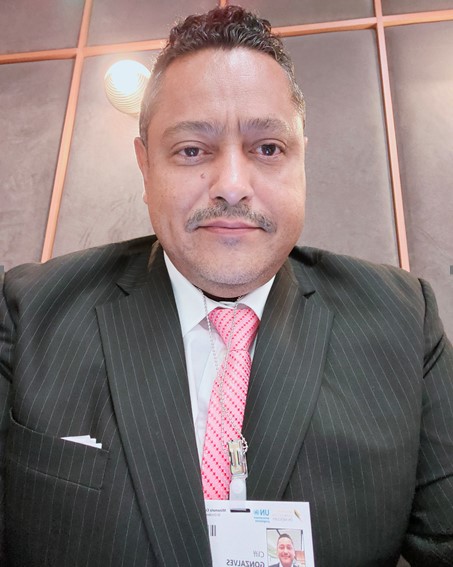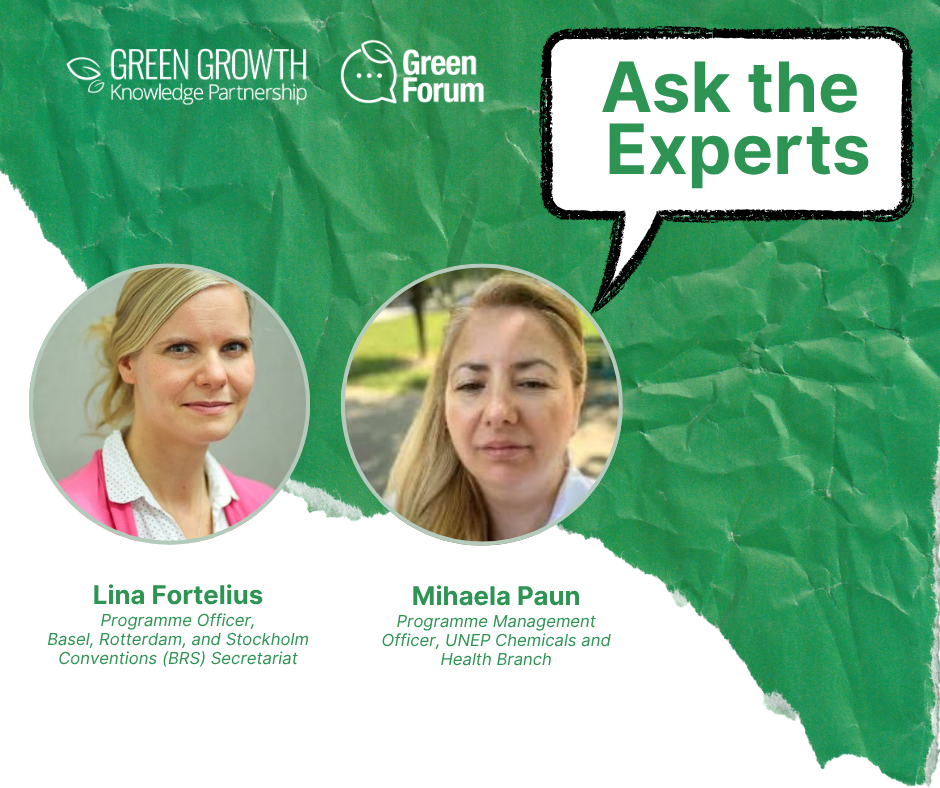The blog is written following an interview with Mr. Cliff Gonzalves, Technical Consultant, leading review and update of National Implementation Plan under the Stockholm Convention on POPs in Seychelles, as part of a Series of NIP Dialogues under the Global NIP Update project (GEF ID 10785), funded by GEF and led by UNEP.
NIP Dialogue Series – Voices from the Countries
Mahe, Seychelles – August 2025
In the azure heart of the Indian Ocean, Seychelles is rewriting its story on chemicals and waste management—this time with stronger resolve and deeper coordination. A decade after finalizing its first National Implementation Plan (NIP) under the Stockholm Convention, the country is entering a new phase: one rooted in legislation, backed by experience, and aimed at lasting reform. Cliff Gonzalves, national consultant for the current NIP review and update, shared that it took nearly 10 years from the previous NIP to bring POPs legislation close to adoption. Seychelles is in a much stronger position to protect its environment and public health.
A Decade after the First NIP
Seychelles' first NIP, completed between 2015 and 2016, was a well-intentioned document. It identified critical gaps in chemicals governance, including the absence of a national chemicals policy, regulatory frameworks, or a designated lead agency. However, these recommendations remained largely unimplemented for years due to chemicals not being a high priority on the national or donor agenda at the time.
“There was no policy, no legislation, and the Ministry of Health was managing all pesticides, including POPs—but nothing was in place for industrial POPs or unintentional production.”
Despite this, the first NIP laid a foundation for future work. Today, those early lessons are guiding Seychelles’ renewed efforts—this time, with political will, technical support, and cross-sectoral engagement.
A Revitalized Process Rooted in Experience
In late 2024, Seychelles launched its NIP update with Gonzalves returning as lead consultant. Four expert working groups were reconstituted—covering pesticide POPs, industrial POPs, unintentional POPs (uPOPs), and legal and institutional frameworks. Many members had worked on the first NIP, bringing institutional memory that proved invaluable. Gonzalves noted the benefit of preserving institutional memory, which helped with alignment on methodology and guidance through training and an inception workshop.
“Because I worked on the previous NIP, I knew what to expect. Some group members returned too—and that made a big difference. We’ve already conducted the training and an inception workshop to align everyone on methodology and guidance.”
The groups began sectoral assessments in early 2025 and are on track to deliver input reports by August. These reports will feed into a revised NIP draft—expected by September—with concrete actions, budgets, timelines, and indicators.
Strengthening Control over Imported Chemical
Like many island states, Seychelles does not manufacture chemicals. Instead, it relies entirely on imports—a fact that makes data control both essential and complicated. Gonzalves explained that controlling imports is the first line of defense, but the customs data is incomplete due to lack of standardized HS codes and the absence of POPs labelling on chemicals within products such as vehicles, electronics, or firefighting foams. To address this, the revised NIP will prioritize detection and testing of imported products. Investments in equipment and capacity building are expected to improve the country’s ability to identify POPs in imported articles—particularly industrial POPs and PFAS.
“We can control the raw chemical imports under new regulations. But for articles, we’ll need proper testing. That’s where the revised NIP will focus—strengthening our ability to detect and manage hidden risks.”
The New Hazardous Chemicals Bill
Among the most significant outcomes of the NIP update process is the near-finalization of Seychelles’ first-ever Hazardous Chemicals Bill. Developed with support from the GEF ISLANDS project (GEF ID 10261), the bill is now with the National Assembly, pending post-election approval.
“Through projects like GEF ISLANDS, we were able to develop both the chemicals policy and the bill. We had strong support from the Cabinet and positive engagement with the National Assembly during awareness sessions.”
The bill introduces key institutional reforms. It mandates the appointment of authorized officers to oversee imports and storage, establishes a national authority and registrar, and sets safety standards for labeling, transport, and disposal. Importantly, it also creates a Hazardous Chemicals and Hazardous Waste Platform—bringing together representatives from health, industry, private sector and government to guide decision-making. Gonzalves stressed that the legislation goes beyond the Stockholm Convention, addressing other dangerous chemicals requiring national regulation.
Engaging the Private Sector and Enhancing Transparency
A surprising ally in the reform process has been the private sector. Rather than resisting regulation, many companies welcomed it.
“During our awareness sessions, importers told us the current system is too open—anyone can bring in anything. They actually want stronger oversight. It was encouraging.”
Under the new bill, importers will be legally required to declare hazardous chemicals to the competent authority. This will create a centralized database and improve transparency across the supply chain. As a small island state, Seychelles also faces constraints in safe storage of hazardous materials. The new bill addresses this by mandating guidelines for secure storage—particularly critical in areas near residential zones or ecologically sensitive sites.
Tackling the Threat of Unintentional POPs
Unintentional POPs remain a serious challenge in Seychelles, particularly from landfill fires, tire burning and open incineration.
“We’ve had several major landfill fires in recent years. Used tires, for example, pile up on small islands with nowhere to go. When they catch fire, you get a toxic cocktail of persistent pollutants.”
The updated NIP will include targeted actions to reduce uPOPs by strengthening coordination between agencies, improving waste storage, and enhancing emergency response systems. Agencies such as the Fire Services, which previously used PFAS-based firefighting foams, are now reviewing their inventories and considering safer alternatives. Fire Services are now a part of the working group. They are taking a close look at their foam stockpiles as part of the working group, and Gonzalves noted that they will also support their phasing-out if needed.
Advice to Other Island States: “Start with Baby Steps”
As Seychelles prepares to finalize its updated NIP and usher in new legislation, Gonzalves offered a message to other small island developing states:
“Be patient. It takes time. You need to educate your decision-makers, build champions, and push steadily. It took us 10 years to bring legislation close to adoption. But that persistence is paying off.”
He highlighted the importance of tailoring approaches to local capacity rather than trying to replicate industrialized country models, advocating for step-by-step training, awareness, and system building for sustainable progress.
Looking Ahead
With a comprehensive legal framework on the horizon and ongoing preparation to update the NIP grounded in local realities, Seychelles is steadily transitioning to strategic governance of hazardous chemicals. Its journey—anchored in institutional memory and regulatory reform—offers a compelling example for other island states navigating similar challenges.
“We still have work to do, but we’re on the right path. We’re not just talking anymore—we’re acting.”
To watch the full interview, please follow this link: Series of NIP Dialogues. How Seychelles is Strengthening Chemicals Governance
To learn more about the Global NIP Update project, visit Global NIP Update | Green Policy Platform



